Representatives from the three main EU institutions met on 23 April in the European Parliament in Strasbourg to discuss the progress made on disability rights during this legislative mandate, and the remaining challenges for the next legislative term.
The meeting was hosted by the European Parliament CRPD Network. It was attended by Belgian Minister for Persons with Disabilities Karine Lalieux representing the Belgian Presidency of the EU, the EU Commissioner for Equality Helena Dalli, our Vice President Pat Clarke and a range of Members of the European Parliament, including MEP Katrin Langensiepen, chair of the CRPD framework, and the Chair of the Employment and Social Affairs Committee, Dragoș Pîslaru.
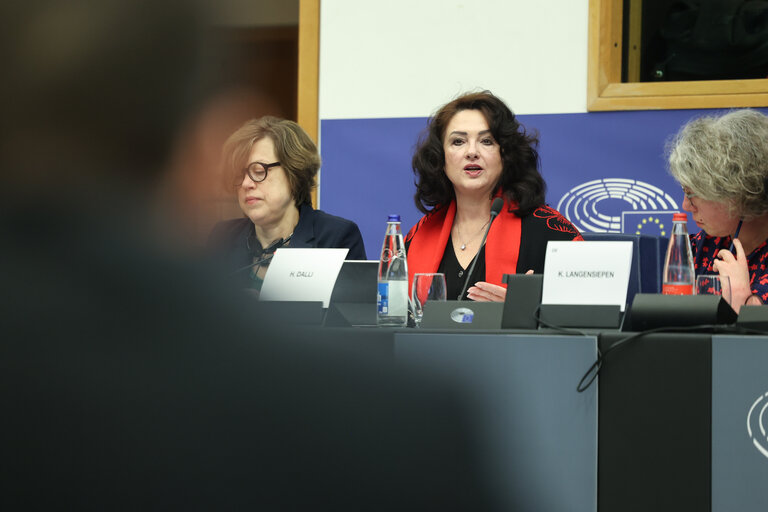
EU Commissioner Helena Dalli opened the meeting by looking back at the mandate’s achievements: the creation of a Disability Platform; initiatives on employment— guidelines to boost employment and a renewed human resources strategy to attract more staff with disabilities; the AccessibleEU Centre, and—importantly—the remarkable fast agreement of the European Disability Card. She highlighted other initiatives, including a guide on good electoral practices and ensuring disability is included in several legislative files.
She finished with a summary of upcoming initiatives, including guidelines on independent living, social services of excellence, and participation in the upcoming G7 meeting in October, which for the first time will discuss disability policies.
Minister Karine Lalieux started by underlining the need to improve access to employment including the need for binding quotas in the public and private sectors. She congratulated co-legislators on the agreement on the European Disability Card and European Parking Card and called for a revision of the Disability Rights Strategy during the next mandate. She finished by joining the Forum’s demand for a Disability focal point in the Council of the EU.
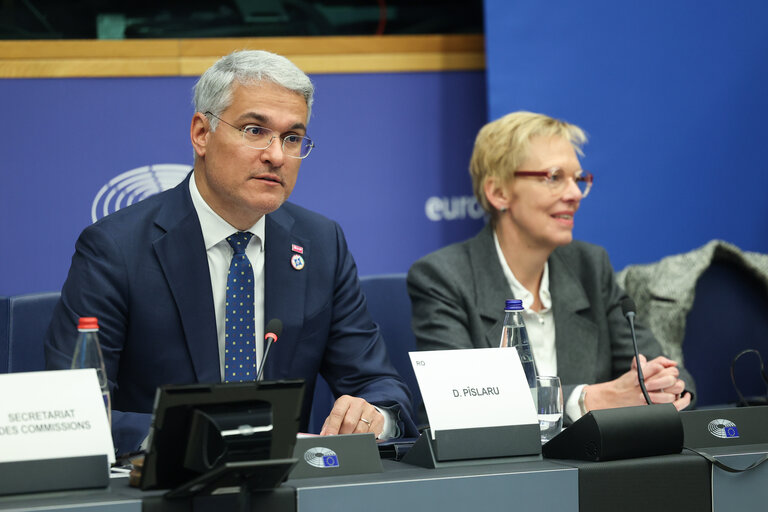
MEP Dragoș Pîslaru gave a summary of the European Parliament’s work, including ensuring a strong European Disability Card, mainstreaming disability rights in other legislative files such as standards on equality bodies, the first-ever Disability Rights week with nine different Committees discussing disability issues, participation in the UN Conference of State Parties to the CRPD, and the inclusion of disability issues in the “La Hulpe” declaration.
MEP Katrin Langensiepen shared the work of the CRPD framework, especially in view of the review of the European Union by the UN Committee on the Rights of Persons with Disabilities. MEP Langensiepen and MEP Abir Al-Shalani shared achievements of the Committee on Employment and Social Affairs, including the fast and ambitious agreement on the European Disability Card and European Parking Card, initiatives on access to quality employment and the hearing on harmful practices to women and girls with disabilities.
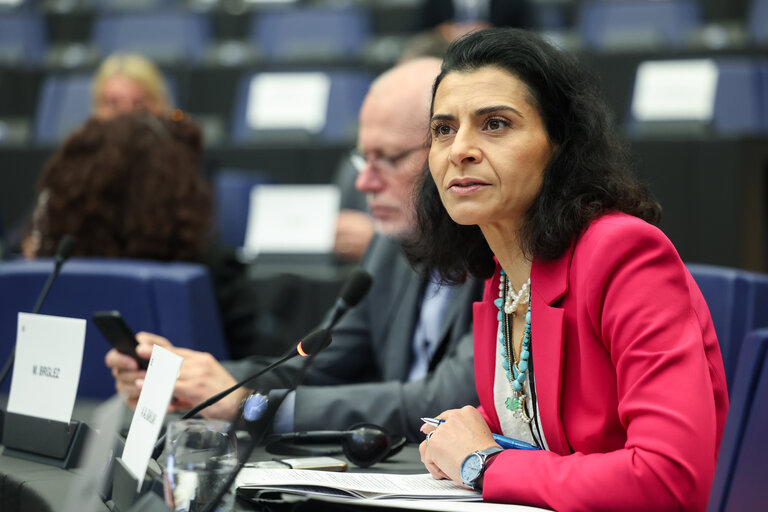
MEP Rosa Estaràs Ferragut shared the activities of the Committee for Women’s Rights and Gender Equality; the Committee included several of our demands in the Directive on combatting violence against women and domestic violence.
MEP Monica Silvana González shared the initiatives on the European Parliament Committee on Development. She started by calling for an end to the forced sterilisation of persons with disabilities and for a stronger approach to disability by the Commission services dealing with humanitarian action policies. She informed participants that thanks to the Committee, persons with disabilities are included in the EU Talent Pool.
MEP Tilly Metz spoke about the efforts of the Transport Committee, which unfortunately fell short of ensuring stronger legislation on passengers’ rights and accessibility of transport, environment and information due to a lack of political initiatives by other institutions.
MEP Sirpa Pietkänen and MEP Marc Angel focused on the Directives on minimum standards for equality bodies, including a stronger role for equality bodies and ensuring an intersectional approach despite opposition in the Council.
Other speakers underlined work on the European Disability Card and the need for a stronger position on ending forced sterilisation. They also mentioned:
- Need to be able to submit petitions in sign language;
- Improving work conditions for staff with disabilities in the Parliament;
- The EU Candidate for the UN Committee;
- Ensuring accessible, inclusive elections;
- Need to ensure less fragmented work on disability rights.
The way forward
Katarina Ivanković Knežević explained that the Commission is developing the last two flagship initiatives: guidelines on independent living and a framework for social services of excellence.
She announced that the European Commission will evaluate the European Disability Rights Strategy. She mentioned two important targets that need to be achieved: closing the employment gap (between persons with disabilities and without disabilities) and developing skills and education for persons with disabilities.
Katalin Molnár, representative of the upcoming Hungarian Presidency of the EU, shared that one of the main focus of the Hungarian Presidency will be the need to ensuring better employment for persons with disabilities.
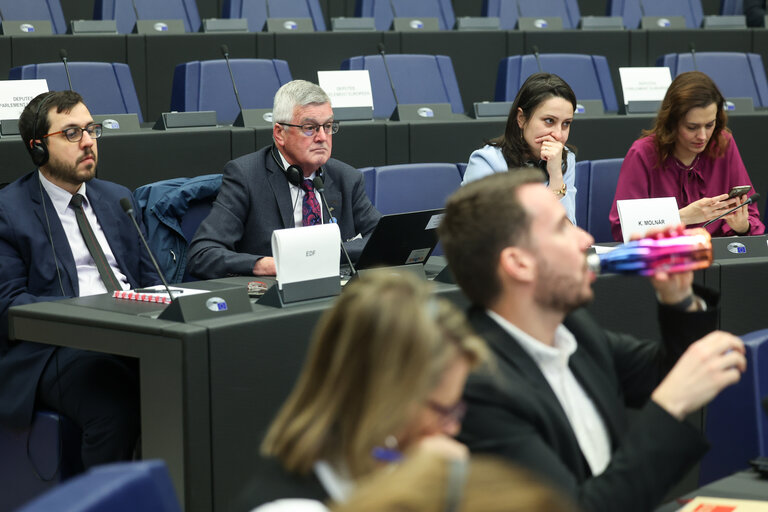
Our Vice-President Pat Clarke shared the demands of the European disability movement, focusing on:
- More resources and stronger services on equality policies, including disability rights in the EU Institutions;
- Legislation to ensure the availability and affordability of assistive technologies;
- Establishing a Disability Employment and Skills Guarantee to boost the participation of persons with disabilities in the open labour market.
MEP Dragoș Pîslaru and MEP Katrin Langensiepen closed the session by highlighting the good cooperation with EDF. MEP Pîslaru focused on the need to address the issue of personal assistants and informal care.
EU Commissioner Dalli, in her closing remarks, focused on:
- The upcoming framework on Social Services that will underpin getting quality support;
- Political participation, where she highlighted the guidelines on electoral practices;
- Forced sterilisation, where she highlighted that now that the EU ratified the Istanbul Convention, Member States are obliged to criminalise this practice.
Minister Lalieux focused on:
- How the Declaration of La Hulpe will guide social policy and inclusion in the next years;
- The need to implement the initiatives in EU countries;
- The need to improve the employment rate and skills of persons with disabilities.
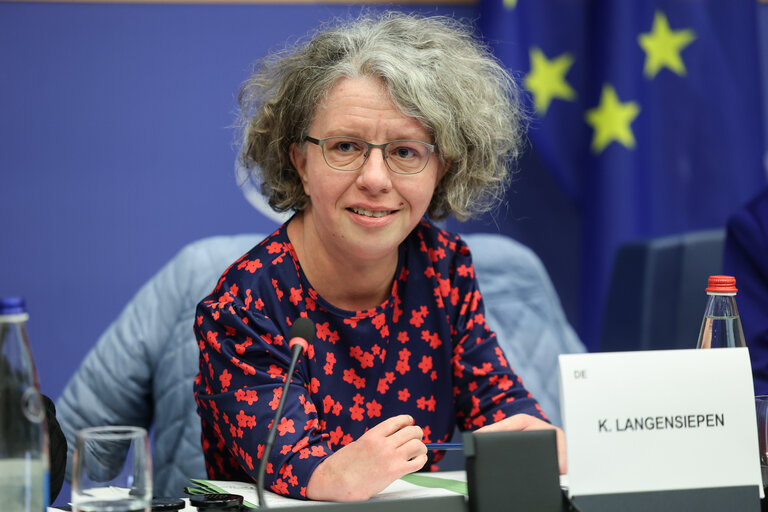
MEP Langensiepen closed the meeting by calling on all initiatives to involve persons with disabilities in the spirit of “Nothing without us”, including when it comes to funding initiatives.